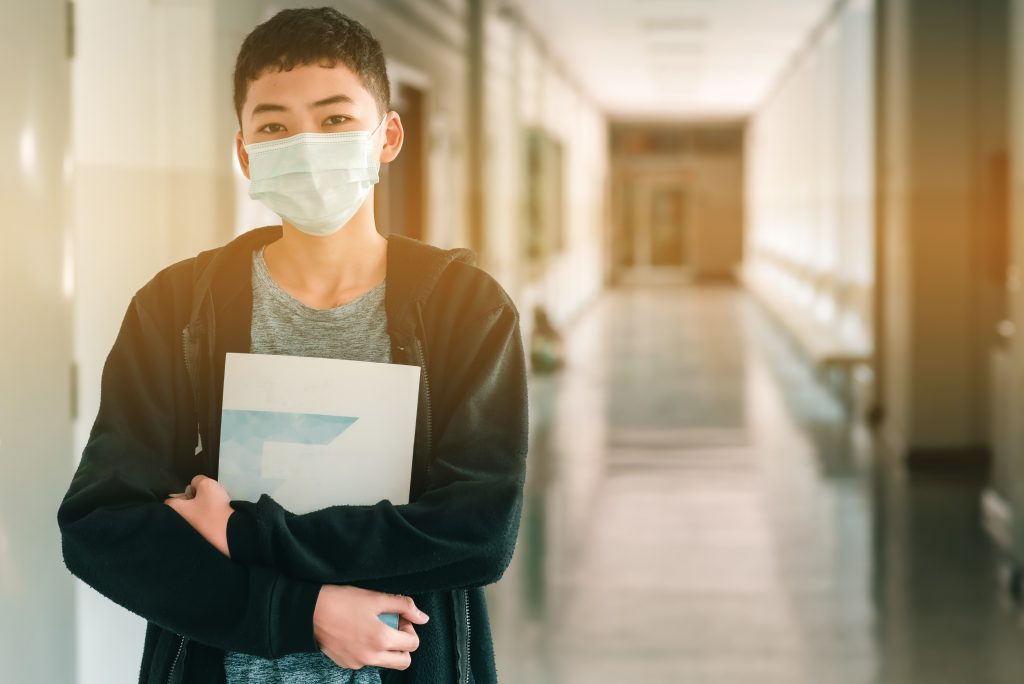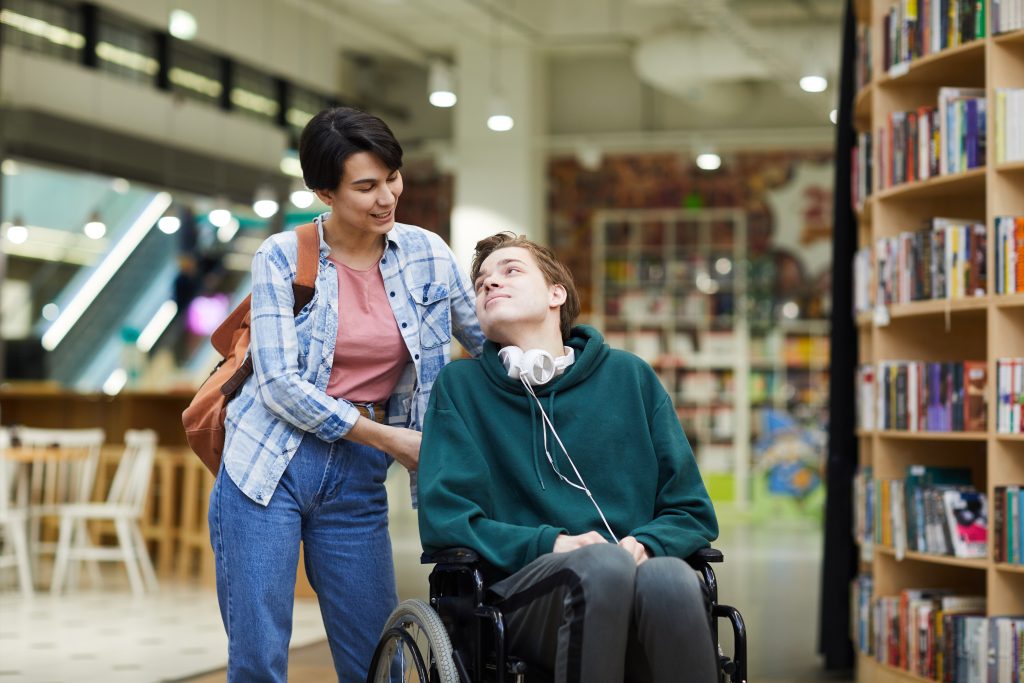
Cancer in High School Series (Part 2): Supporting a Classmate During Treatment
“Over the years, I’ve answered, ‘What’s the hardest part about having cancer as a teenager?’ in the same way: feeling forgotten.”
Treating cancer is a difficult process and should certainly not be faced alone. Yet, many high school students diagnosed with cancer feel isolated from those around them immediately following the diagnosis and face increased separation during the treatment process. Preserving a sense of normalcy and helping a diagnosed classmate stay connected with their community is one of the best ways you can be there for them.
Support comes in many forms—emotional, verbal, and physical. You can stay connected online, plan in-person visits, write cards, give gifts, deliver their homework, etc. While all great efforts, support heavily depends on the patient and should be tailored to their specific needs and wants. To do so, you must first understand the process of giving and managing effective support.

Understanding a Classmate’s Situation
Receiving the news that your classmate has been diagnosed with cancer is shocking. It can stimulate so many different feelings—confusion, discomfort, and anxiousness, to name a few.
And many questions immediately come to mind…
- How should I react?
- What is okay to say and what isn’t?
- What can I do to be there for them and/or their family?
While these immediate questions and feelings might feel overwhelming, they are normal and vital to address and reflect on. Use these feelings to educate yourself on what your classmate is going through. Find someone to talk to, like a parent, teacher, or counselor. Being aware of what your classmate is and will experience during this challenging time allows you to meet them where they are and provide the best support possible. For example, suppose you know your classmate has an upcoming surgery. In that case, you can start rallying their support network to take turns planning virtual or in-person hangouts, taking notes for them during class in their absence, or fulfilling needed wishlist items. Equally important is ensuring that the support offered is aligned with how they want to be supported and feels authentic.
Preparing for Change
During cancer treatment, they may experience physical and emotional changes, including but not limited to hair loss, weight gain or loss, mobility limits, endurance limits, “chemo brain” (challenges with concentration and comprehension), neuropathy, etc. These temporary changes may make them feel more self-conscious and sensitive to their physical and social environment.

“A big struggle for me was my appearance. I used to have the longest brown hair, and now, here I was with the shortest pixie cut I’d ever seen. And I HATED it. Oh, my word, it was the absolute worst!”
Preparing for these changes can help you maintain your relationship and minimize changes to how you perceive or treat them. It will create a more comfortable environment once you become familiar with the changes and know what to expect. Remind yourself that these changes are associated with cancer or treatment, and do not change your relationship or the person you knew before.
Emotional Support: Holding Conversations with a Classmate
One of the most significant ways to be there for your classmate is to have normal conversations with them. Whether it be about a recent news headline, classmate updates, or celebrity gossip, offering a diversion from cancer is always welcome, as it has quickly taken over their entire life. As a friend and classmate, you should focus your time spent together on staying connected and building your relationship, just as you did before their diagnosis. Your goal is to preserve a sense of normalcy.
“Stay connected with friends through social media and texts, inviting friends to the hospital during visiting hours and playing video games or watching movies when at home.”
“For times when you can’t see friends or family you can stay connected through social media, email, blogs and phone or video calls.”
Equally important is following their lead when it comes to important topics. As important as it is to preserve normalcy and have lighter conversations, do not be ignorant of cancer. If the topic comes up, it means they want to talk about it. Be a good listener. Friends and peers who go through this often like to share their feelings and talk about the overall situation. This is a good outlet to help you understand what’s going on at a deeper level and get a better sense of their wants and needs.

“We relied on each other for comfort and understood what each was going through. We were able to let out frustration when times were hard or when we didn’t feel our best.”
Patience is key when communicating with a classmate who is diagnosed. Since they are going through so many changes in such a short amount of time, it may take a while for them to wrap their head around the fact that their world was completely flipped upside down. Treatment often causes a decrease in energy and mood swings, so don’t be overwhelmed if your classmate struggles to feel happy and enthusiastic. With cancer, every day is different and brings a new set of challenges. Do not back away from the situation and leave them to deal with it all alone. Keep showing up to avoid stimulating feelings of isolation and distance.
General Tips to Support a Classmate
While you continue to talk and meet with your classmate going through treatment, here are some general things to keep in mind during your interactions:
- Take the initiative to make plans and be flexible with them. Keep inviting them even if they decline sometimes. It is important to feel included and not forgotten.
- Stay positive and friendly, even when the same feelings are not reciprocated. Remember, they are going through a lot and it is not personal.
- Understand their perspective. Try to imagine what it must feel like (without saying “I know how you feel”)
- Hold space for uncomfortable topics.
- Treat them the same, don’t view them differently because they have cancer.
- Always be ready to help: mentally, physically, and emotionally.
- Self care is also important – take care of yourself and find your own outlets to destress, talk and process. You can’t be present for them if you are tired or preoccupied.
- If they have siblings going to the same school, be sure to check in with them too. Remember cancer affects the whole family, and siblings can feel even more isolated and abandoned.
“It’s never easy dealing with an illness like this, but I’m blessed to have the great support system that I do. I don’t know what I would do without my family being here for me.” —Autumn Cole
Continue being there for them. Show up and don’t distance yourself from the relationship or situation just because it may be a little uncomfortable.

Visual and Practical Support
Visual and practical support is equally important to emotional support. As supporters, we should not only help facilitate emotions and stay verbally connected with them but assist them in daily tasks, getting things they may need, etc
Be a Liaison
Offer to help communicate to all necessary people, whether it is with other classmates or teachers. Offer to send messages on a regular and recurrent basis. Take the initiative to curate a list of contact information to help you relay important news

Schoolwork and Education
“When I was having chemo, the school didn’t [realize] how sick I was going to get and they kept sending me assessment tasks. After a while, they stopped doing that and just asked how I was now and then.”
Keeping up with homework is difficult for many high schoolers going through an intensive treatment program. They may tire more quickly, both mentally and physically, which makes it hard to keep up with class assignments; this is something many fail to recognize. Helping to offer them balance school and treatment, from taking notes and tutoring to something as simple as passing along assignments, can be very appreciated.
Care Packages
Mixing creativity with the needs and wants of your classmate can be a fun project to show support. Consult with their parents about foods and drinks they currently enjoy, include some personal care items like scented hand sanitizer and fuzzy socks, and add a few enjoyable activities that can be done to occupy time alone like small puzzles, books, or a journal. Put it all together in a decorated box and deliver it to them. When you take the time to bring them meaningful items that correlate with their interest in a nicely-wrapped package, it shows how much you care and that you are there for them – it builds a sense of trust and connection.
Miscellaneous Gifts
Some ideas to show support include
- Pajamas
- A thoughtful, interactive card
- Souvenirs
- Pictures
- Self-care items
- Games or activities
Tips for Maintaining Contact with a Classmate
Sometimes it’s hard to find time to connect with your classmate because of the conflicts between their treatment schedule and personal health and yours. That is the beauty of virtual communication. Take the time to send a text message, mail a gift, or leave a voicemail. Contact their parents for their schedule and spend a few minutes finding a time that works for both of you. Even the smallest gestures show you care.

A strong support system is vital during the treatment process. Supporters must try to understand the situation, the person, and their diagnosis to the best of their ability and act accordingly to maintain connection and be there for them when needed.
And as we begin to think about post-treatment support and lifestyle changes, more questions arise on how to help create a smooth transition into their “new normal.”
- How do I continue to support the student after treatment?
- What questions should I be asking?
- What support should I be giving?
- How do I preserve the feeling of “normal”?
- What things should I avoid saying/doing?
The next segment of the Cancer in High School series will cover how to support a student after the treatment process: the do’s and don’ts of support.
For more tips on how to show support to a classmate, visit the following resources:
- American Cancer Society, How to Be a Friend to Someone with Cancer
- Cancer Council, When a Student Has Cancer
- St. Jude Children’s Research Hospital, Stay Connected to Friends during Cancer Treatment
Want more?
- Learn more about the b-aware program
- Read You Just Found Out Your Friend Has Cancer – Now What?
- Subscribe to The Support Report with b-present
- Follow b-present on Instagram
